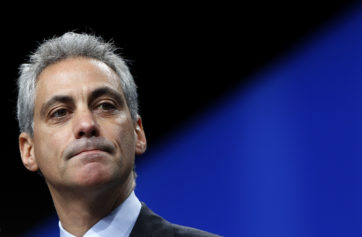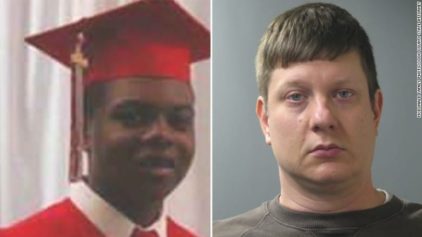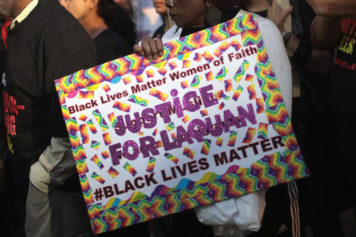Six years after Laquan McDonald, 17, was shot in the back by former Chicago Police Officer, Jason Van Dyke, McDonald’s family and local activists are still seeking full accountability for McDonald’s death.
“Yes, the family is seeking federal charges,” Tracey Hunter, Laquan McDonald’s grandmother said hours before Van Dyke was released from state prison three years earlier than expiration of his original sentence.
Van Dyke was released from Taylorville Correctional Center on Feb. 3, 2022, after serving only half of his nearly seven-year sentence. Van Dyke was granted an early release due to good behavior. He was convicted in 2018 of second-degree murder and 16 counts of aggravated battery, one for each bullet he fired at McDonald.
In January 2019, Cook County Judge Vincent Gaughan sentenced the former police officer to 81 months in prison.
At the time, Gaughan described the shooting as “a tragedy on both sides,” and “he decided the 16 shots were all one act and Van Dyke should only be sentenced on the second-degree murder charge,” which meant Van Dyke’s sentence could range from probation up to 20 years in prison according to NPR.
A year after the shooting, the controversial dashcam video of the night McDonald was killed on October 20, 2014, was made public after a court order.
The video shows McDonald’s final moments as he’s seen walking in the middle of a street, armed with a knife until Van Dyke pulled up and shot him in the back 16 times. Other officers had been following McDonald without engaging him before Van Dyke arrived on the scene.
“Justice have definitely not been served and it’s never been served from the onset of this particular case,” said Mark Clements, activist, and member of Chicago Torture Justice Center.
The day Van Dyke was released from prison, activists stormed the Dirksen Federal Courthouse in protest.
With Van Dyke having served time for state charges, a growing chorus of activists, local officials and McDonald’s family are demanding the U.S. Attorney for the Northern District of Illinois, John Lausch, file federal civil rights charges.
Cook County State Attorney, Kim Foxx said of Van Dyke’s release: “The sentence that was put down for Jason Van Dyke does not meet the crime. If there’s an ability to do something about it on the federal level, then, by all means, something should be done.”
After nearly seven years removed from the night of the shooting, Sonny Thatch, managing attorney with Justice Corps in Chicago is doubtful federal charges will be filed.
“I think there’s a general reluctance to file again back to my first point, after the individual has been charged, tried, convicted, served their sentence and then has been released,” Thatch said.
Thatch also says because the state did issue an 81-month prison sentence to Van Dyke, the chances of the federal government stepping in to do similarly are also unlikely.
“Though there are exceptions this does in my mind trigger the same principles behind double jeopardy where you’re not to try the same person for the same acts,” Thatch said.
An online petition has more than 21,000 signatures calling for federal charges. Clements says more protests are planned to pressure the U.S. Attorney to act.
McDonald’s grandmother says she’s still seeking justice. “Whatever happens, I’m going to keep trying and trying until this man gets convicted. We need every abled body to help us with this healing,” Tracey Hunter said.
Atlanta Black Star contacted U.S. Attorney Lausch’s office to learn if federal charges are likely, and while his office indicated the federal investigation is still active, there was no word on if federal civil rights charges are likely.
More news from our partners:
Black Americans Might Miss Out on the $68 Trillion Transfer of Generational Wealth. Here’s Why.


